Illustrated information
The Nobel Prize in Physiology or Medicine 2006
The Nobel Assembly at Karolinska Institutet has awarded the Nobel Prize in Physiology or Medicine for 2006 jointly to Andrew Fire and Craig Mello for their discovery of RNA interference – gene silencing by double-stranded RNA.

RNA interference is a fundamental mechanism for controlling the flow of genetic information in cells.
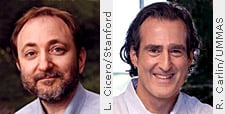
Andrew Fire
Born 1959. Stanford University School of Medicine, Stanford, California, USA.
Craig Mello
Born 1960. University of Massachusetts Medical School, Worchester, Massachusetts, USA.
The central dogma
The genetic information in double-stranded DNA is transcribed into single-stranded messenger RNA (mRNA) in the cell nucleus and subsequently translated into protein in the cytoplasm.
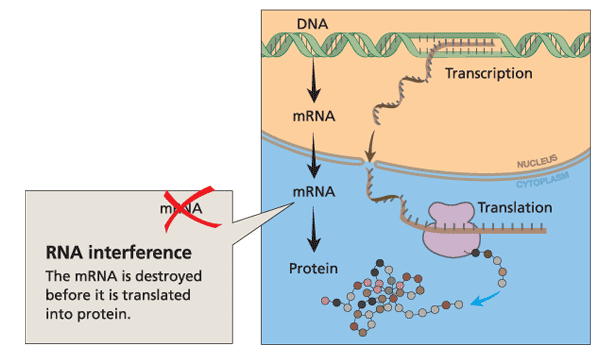
RNAi in the cell
Several processes generate double-stranded RNA.
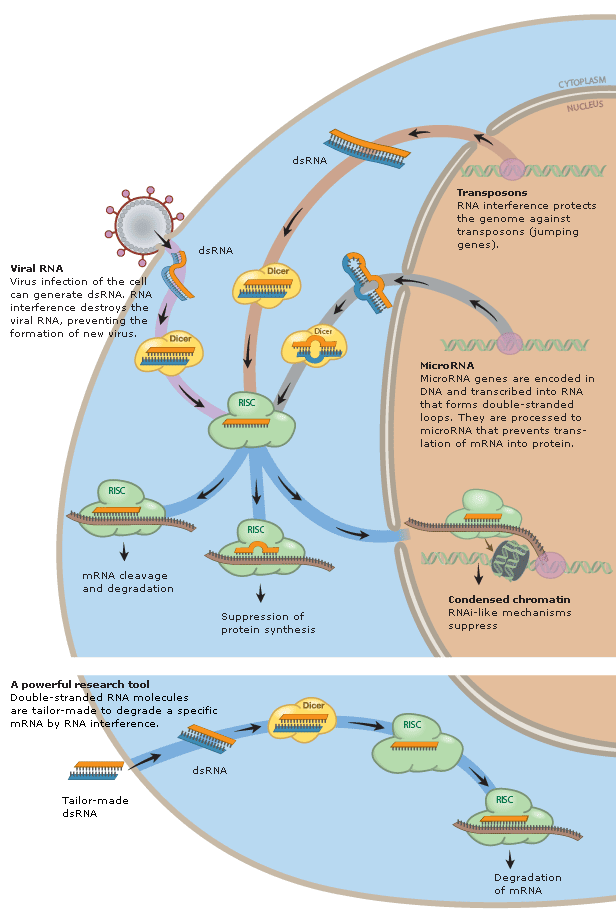
RNA interference, RNAi
Double-stranded RNA triggers gene silencing.
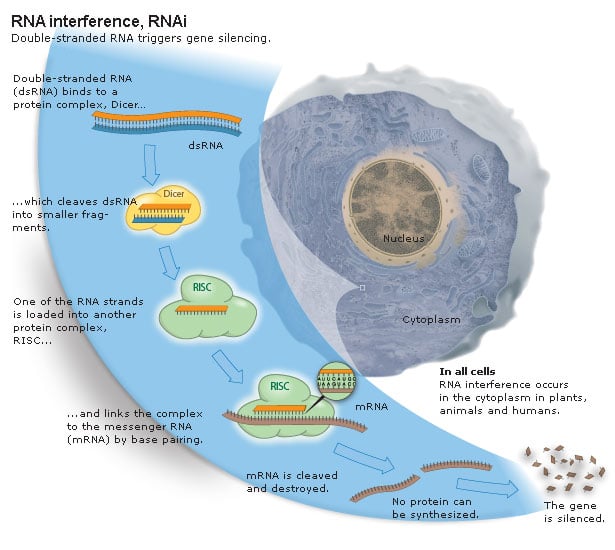
Key experiments
Gene silencing
Fire and Mello injected RNA corresponding to a gene important for muscle function in the worm C. elegans.
Single-stranded RNA (sense or antisense) had no effect. But double-stranded RNA caused the worm to twitch in a similar way to worms that lack a functional gene for the muscle protein.
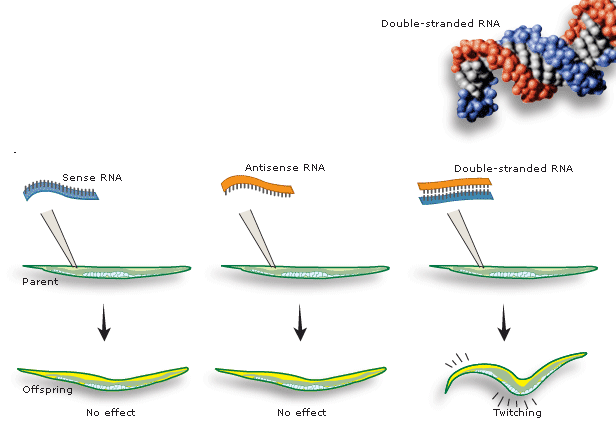
Loss of target mRNA
Fire and Mello injected RNA (mex-3 RNA) into the gonads of the worm C. elegans and studied the effect on the corresponding mRNA.
They found that double-stranded RNA, but not single-stranded RNA, eliminated the target mRNA.
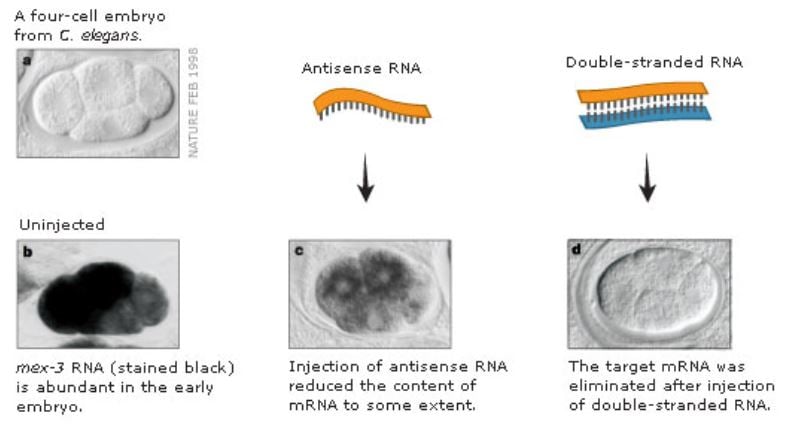
RNA-based therapy – future and opportunities
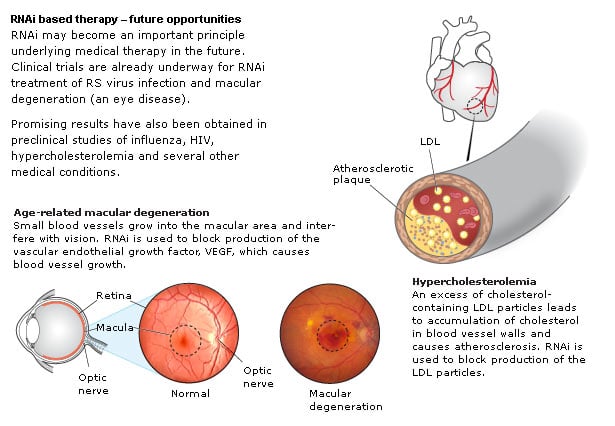
Credits and References for the 2006 Nobel Poster for Physiology or Medicine
Scientific Advisors, Professors at Karolinska Institutet:
Bertil Daneholt, Molecular Genetics, Chair of the Nobel Assembly
Göran K. Hansson, Medicine, Chair of the Nobel Committee
Hans Jörnvall, Physiological Chemistry, Secretary of the Nobel Assembly
Nils-Göran Larsson, Genetics
Illustrations and Layout: Annika Röhl, Bengt Gullbing
Copyright © The Nobel Committee for Physiology or Medicine at Karolinska Institutet, 2006
Web adapted version: Nobelprize.org
Nobel Prizes and laureates
Six prizes were awarded for achievements that have conferred the greatest benefit to humankind. The 12 laureates' work and discoveries range from proteins' structures and machine learning to fighting for a world free of nuclear weapons.
See them all presented here.
